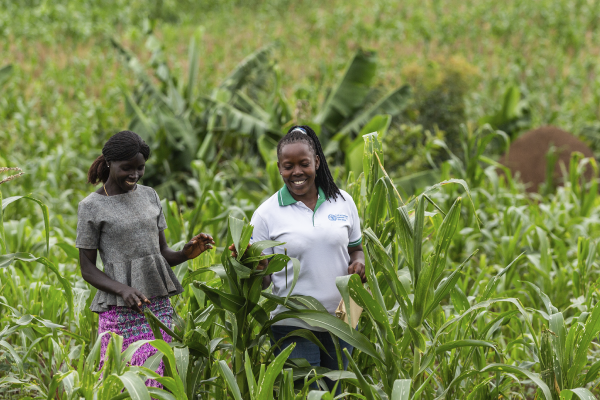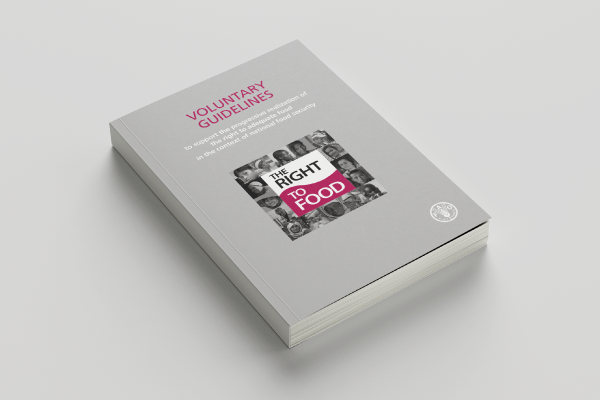The world's farmers produce enough food to feed more than the global population yet, hunger persists. Up to 783 million people face hunger due to conflict, repeated weather shocks and economic downturns. This impacts the poor and vulnerable most severely, many of whom are agricultural households, reflecting widening inequalities across and within countries.
Food is the third most basic human need after air and water – everyone should have the right to adequate food. Human rights such as the right to food, life and liberty, work and education are recognised by the Universal Declaration of Human Rights and two legally binding international covenants.
‘Foods’ stands for diversity, nutrition, affordability, accessibility and safety. A greater diversity of nutritious foods should be available in our fields, fishing nets, markets, and on our tables, for the benefit of all.
Unhealthy diets are the leading cause of all forms of malnutrition – undernutrition, micronutrient deficiencies and obesity, which now exist in most countries, cutting across socio-economic classes. Yet today, too many people suffer from hunger and are unable to afford healthy diets. More vulnerable people are often forced to rely on staple foods or less expensive foods that can be unhealthy, while others suffer from the unavailability of fresh or varied foods, lack the information they need to choose a healthy diet, or simply opt for convenience.

Hunger and malnutrition are further exacerbated by protracted or prolonged crises that are driven by a combination of conflict, extreme weather events and economic shocks. Agrifood systems, as a whole, are vulnerable to disasters and crises, particularly the impacts of climate change but at the same time, they are generating pollution, degrading soil, water and air, and contributing to greenhouse gas emissions, and biodiversity loss. By transforming agrifood systems, there is great potential to mitigate climate change and support peaceful, resilient and inclusive livelihoods for all.

FAO provides countries with technical assistance on policy and legislation, strengthens governance and monitoring mechanisms, develops capacities and promotes multistakeholder policy dialogue to transform agrifood systems for better production, better nutrition, a better environment, and a better life for all. We also provide humanitarian and resilience building assistance to the most vulnerable, crisis-hit people and their communities, providing time-critical agricultural support to almost 57 million people in 2023.
A food secure and nutritious world for all requires massive investment, innovation, science, technology and wide collaboration between a range of actors including governments, the private sector, academic and research institutions and civil society.
Only when everyone enjoys the human right to adequate food will we be able to achieve other human rights and the Sustainable Development Goals. The Universal Declaration of Human Rights is a blueprint for a more equal and just future for all people everywhere. And we all have a role to play. As consumers, we can exercise rights and call on governments to tackle inequality and poverty, make healthy food choices to increase their availability, reduce food waste and protect the environment.
Healthy diets are diverse, balanced in energy intake, adequate to meet nutrient needs, and moderate in the consumption of unhealthy foods. Agrifood systems can and must enable all people to consume healthy diets now and in the future for the health of people and the planet. But greater commitment, investment, and innovation approaches area needed to realize this ambition.
.png?sfvrsn=39e37ebb_15)

In 2024, the international community celebrates an important milestone in the human right to adequate food, the 20th anniversary of the “Voluntary Guidelines to Support the Progressive Realization of the Right to Adequate Food in the Context of National Food Security”.
The Right to Food Guidelines provide practical guidance for States on how to realize the right to adequate food through the development of strategies, programmes, policies and legislation. The 20th anniversary is a call to governments for enhanced global commitment to the right to adequate food for all, including through sustainable, fair and transformed agrifood systems.
Collective action across 150 countries worldwide, in up to 50 languages, is what makes World Food Day one of the most celebrated days of the UN calendar. Hundreds of events and outreach activities bring together governments, municipalities, businesses, CSOs, the media, the public, even youth. They promote worldwide awareness of hunger and promote action for the future of food, people and the planet.
Together we can create a better, more sustainable food future for all. Make #WorldFoodDay YOUR day. Join the call by organizing an event or activity or show how you are taking action.
Contact us for more information at: